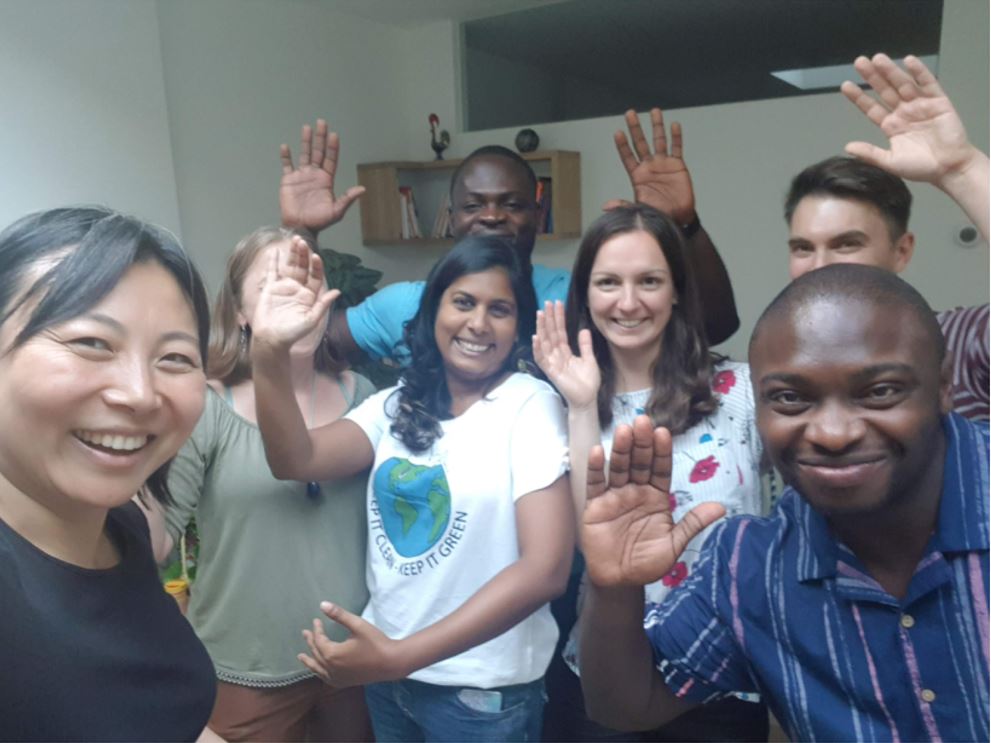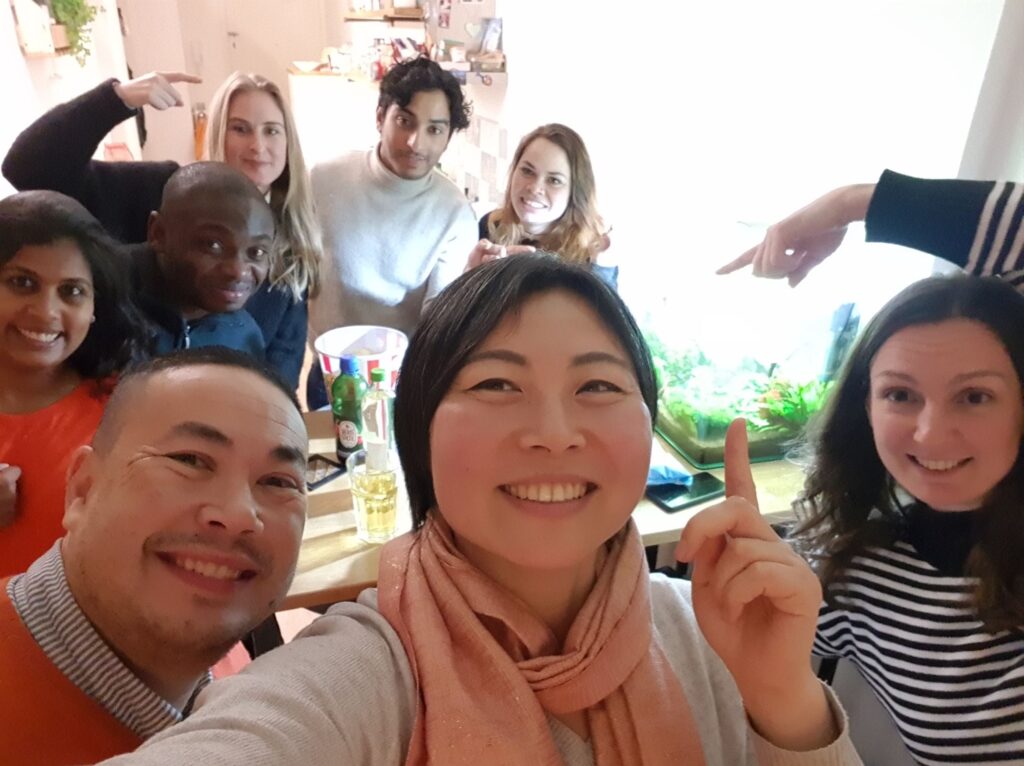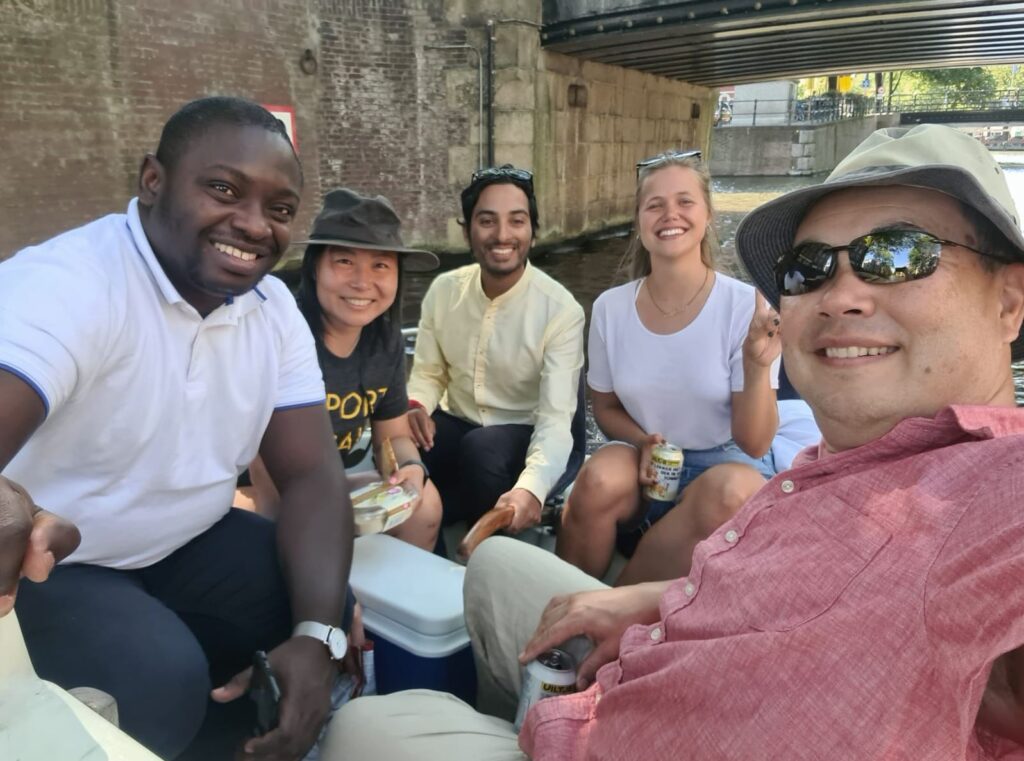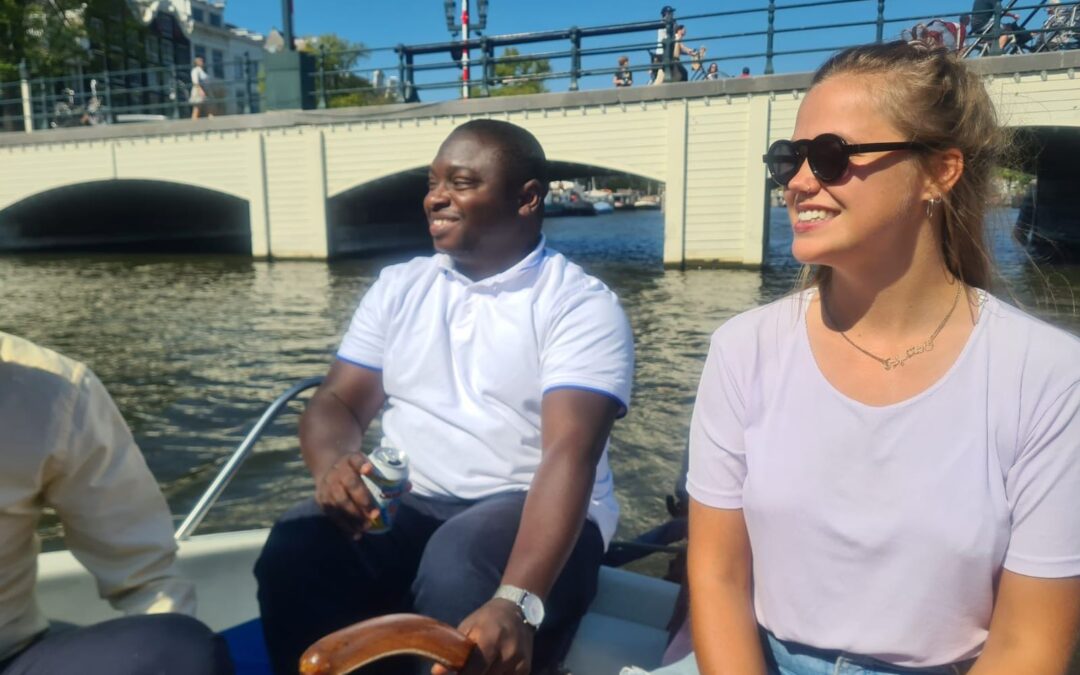“While I’ve worked with DAYAD, I’ve gotten to know more about climate activities and how to adapt to climate change. I’ve realised how individuals can do their own bit for climate adaptation. It doesn’t have to be the multinationals or the big companies, but we all have a role to play. And that is the message we are sending to everyone that cares to listen.” – Olusegun Adeoye
Get to know the team behind Day of Adaptation. We are fortunate to have many amazing individuals working with us, and want to shine the spotlight on their journeys and contributions!
Next up in the series is Olusegun, who has been involved in our finance cluster since the very beginning. Read on to find out how he joined Day of Adaptation, what his accomplishments and challenges have been, and what he has learned about how to adapt to climate change while working with us.
1. Can you briefly introduce yourself?
I’m Olusegun, I’m from Nigeria and have been in the Netherlands for 4 years now. I finished a Master’s of Business Administration in Finance and now have a job with Ahold Delhaize as an IT Risk and Control Specialist, which I’ve been doing for almost two years now. I live here with my wife and three kids, who are 13, 10 and 8 years old.
2. How did you first encounter DAYAD and how long have you been involved?
I joined DAYAD in December 2018, when I was introduced to Shu by a friend of mine, Fisayo, with whom I was doing the MBA programme. I immediately liked Shu’s approach on how to adapt to climate change, and there was just this click when we met. The personality and the drive behind each person is really important, and we were on the same page.
At the time, I wanted to put my skills to use in a new environment. I studied accounting, and I knew I could put my service to good use for workplace sustainability as a volunteer at DAYAD. I was lucky enough to work with a couple of guys, including Sebastian and Fisayo, in setting up the finance cluster. We did the ground work, put together everything that would be needed. We’ve been going down that path ever since, and I’d say there have been no regrets.

The Day of Adaptation team getting to work, with Olusegun on the right.
3. What do you do with DAYAD?
My work is in the finance cluster. One of the main tasks is budgeting for what we’ll be doing in the coming year to inspire workplace sustainability, and this of course aligns with our strategy planning for DAYAD. I also work on processing bank payments, bank reconciliation, creating invoices for all of our activities, and payment of invoices for any service that we use. I’m also the person in charge of filing our tax returns. It’s been an interesting ride all along. When needed, I also work with other clusters where assistance is needed, brainstorming ideas on how we can move DAYAD forward.
4. What got you interested in how to adapt to climate change?
To be honest, I didn’t know that much about climate adaptation until I joined DAYAD. Every step of the way has allowed me to learn something new. It’s been quite a good learning curve!
I have joined both Game Day and Dialogue Day on quite a few occassions. We started with Dialogue Day before the Game Day came up. Then suddenly the idea dropped that we can create a game, and we developed it step by step. It’s always evolving based on life, business environments and the things taking place in the world. For example, last year we adapted the game to a Kenyan context. It showed us that our message about how to adapt to climate change can be passed onto people within that locality as well.
While I’ve worked with DAYAD, I’ve got to know more about climate activities and how to adapt to climate change. I’ve realised how individuals can do their own bit for climate adaptation. It doesn’t have to be the multinationals or the big companies, but we all have a role to play. And that is the message we are sending to everyone that cares to listen that yes, you can do your own bit. You can reduce flights, you can get an electric car. If each of us plays our part and takes action in our own way, the climate will be better for each and every one of us.

5. What was your biggest success at DAYAD so far?
I can’t take any credit for myself, but with the team, the biggest success for me is setting the foundation for the finance cluster of DAYAD. It wasn’t always a bed of roses, we made some mistakes along the way. But we had good people around us, within and outside the organisation, who were ready to help.
We learned a lot, and we’re still learning. For me, setting the financial structure for DAYAD also signifies setting dreams by carving it out in our budget. That way we can reach the milestones that we have set for ourselves, always keeping in mind helping people learn about how to adapt to climate change. Optimising and monitoring the utilisation of the budget has been quite a significant task. And I’ve enjoyed doing it at DAYAD.
6. What are some challenges you’ve faced while working at DAYAD?
For me, the basic challenge when starting out was with the language. I’m from Nigeria, where we speak English. But here in The Netherlands everything, especially dealing with the tax office, is done in Dutch. The accounting software was in Dutch, and the English translation didn’t include all the words, so I was corrected by a friend of DAYAD who is an accountant. I took it upon myself to learn more about the language and can now speak better, but this is still sometimes an issue for us while working in The Netherlands.
7. What’s your favorite memory working with DAYAD?
There’s a few of them! There’s a culture within the organisation which emphasises team spirit and team bonding. Before COVID lockdowns we always had activities where the volunteers gather and share experiences about workplace sustainability. For example, we joined a zumba class together, and most recently we had a boat ride together. It’s just about how we try to break the ice between members. It’s not that we are laidback, but we are not too serious either. This has always been one of the great things about DAYAD for me.

Team get-together on the canals of Amsterdam.
8. If you could learn a new skill, what would it be?
I’m already learning the skill I want to have. I want to know everything about information technology and the Internet of Things. My work experience back in Nigeria was in business. I always wanted to change to something like IT because that’s going to be even more important in the future. And I’ve been able to do the switch in the last two years with my new company.
9. What is the perfect Sunday for you?
I start the day by going to church on Sunday mornings. It’s also the only day of the week that I get to take a siesta. Around 3PM my system is asking for it: “Hey, it’s Sunday. Let’s take a nap.” So I just lay on the couch and switch off. During the week there’s a lot of chores and running around, so I need a moment to take a breather. The kids already know my Sunday routine, and know to do their own thing while dad takes a nap.
–
Do you think the work Olusegun has been doing with Day of Adaptation on how to adapt to climate change sounds interesting? Learn how you can get involved with our work to empower climate action!

